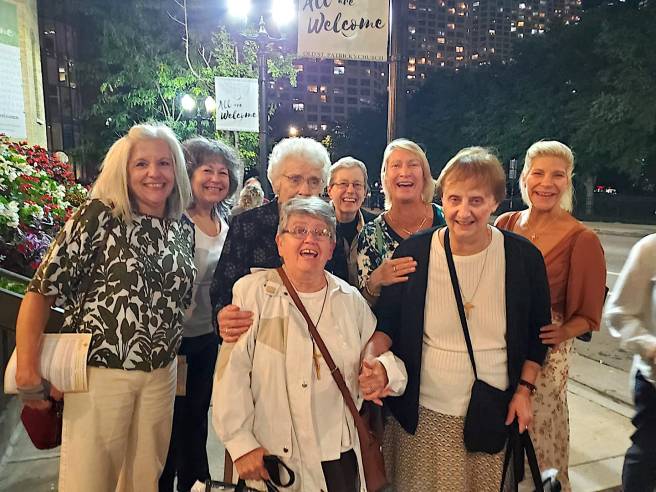 HE HOLY MARTYRS of North America were Jesuits who had their nails bitten off, their fingers sawn off, their tongues cut out, and were roasted (slowly) over fires for months. In spite of all that, their desire to suffer for JESUS CHRIST could not be satiated. In one incident, Father Isaac Jogues (d. 1646) knelt at the side of René Goupil, who was bleeding profusely from his wounds. “Dearest brother,” he said, “God has acted strangely toward us. But He is the Lord and the Master. What is good in His eyes, that He has done. As it has pleased Him, so be it. Blessed is His Holy Name forever.”
HE HOLY MARTYRS of North America were Jesuits who had their nails bitten off, their fingers sawn off, their tongues cut out, and were roasted (slowly) over fires for months. In spite of all that, their desire to suffer for JESUS CHRIST could not be satiated. In one incident, Father Isaac Jogues (d. 1646) knelt at the side of René Goupil, who was bleeding profusely from his wounds. “Dearest brother,” he said, “God has acted strangely toward us. But He is the Lord and the Master. What is good in His eyes, that He has done. As it has pleased Him, so be it. Blessed is His Holy Name forever.”
“God Has Acted Strangely” • In a certain sense, God has acted “strangely” in our day. Powerful clerics have attempted to forbid the Sacrifice of Calvary (!) from being celebrated inside a parish church. On the other hand, Canon Law (932 §1) stipulates: “The eucharistic celebration is to be carried out in a sacred place.” And yet, the following concert (see below) was allowed to take place in a church! Who can make sense of this?
A Different Type Of Jesuit • On 21 September 2023, composers Dan Schutte, Father Roc O’Connor (SJ), and Father Bob Dufford (SJ) joined together at Old Saint Patrick’s Church in Chicago for a concert called: “Sing to the Mountains!” The men stood in the Sanctuary of the church. A crowd of middle-aged and elderly people in the audience sang songs like Be Not Afraid, Sing to the Mountains, and Here I Am, Lord. Many consider those ditties to be a mixture of Broadway and folk—i.e. not suitable for Mass. Pictures from the event:
Palestrina Aghast! • Masters such as Palestrina (who died in the arms of Saint Philip Neri), Guerrero, Lassus, Byrd, Marenzio, Morales, Jacobus Händl, Zachariis, Bernabei, Nanino, Croce, Zoilo, Clemens Non Papa, Gabrieli, Josquin, Ingegneri, and Victoria wrote music of incomparable excellence for the sacred liturgy. Their compositions have never been surpassed. The purity of their melodies, the timelessness of their harmonies, and their utter command of counterpoint boggles the mind even today. Suppose you invented a time-machine to zip back to the 16th century. Suppose you showed them elderly men standing in the SANCTUARY playing secular instruments. What would they have thought?
The Bible • In the Gospel of Saint Matthew, we read: “Woe to the world because of scandals. For it must needs be that scandals come: but nevertheless woe to that man by whom the scandal cometh.” Perhaps we could do a better job shining the light on scandals. It seems like the same mistakes are made over and over again. For instance, my colleague ANDREA LEAL recently posted a video from a major Catholic publisher. I’m not going to repeat everything Andrea already said, but I would note the USCCB had previously given exclusive rights over the psalter to a private, non-Catholic company. Jeffrey Tucker of the CMAA found out about this and attempted to sound the alarm, but very few listened. (Dr. Jerry Galipeau was an exception, and it reflects well on him.) Recently, it was announced that ICEL has given exclusive rights (!) to sell the new LITURGY OF THE HOURS hymns to that same company! That company’s president declared on 30 September 2016:
“I’ve had the honor to work with these three wonderful people [Marty Haugen, Michael Joncas, and David Haas] for more than 30 years, and I can’t overestimate the profound impact that they’ve all had for me personally, for everyone at GIA Publications, and for the worshiping church at large.”
Déjà Vu • Why was that non-Catholic company given exclusive rights to sell (!) the hymns of the LITURGY OF THE HOURS? Do we really want a company that has been “profoundly impacted” by David Haas “for more than 30 years” to have exclusive rights to sell prayers that Catholic priests are required to say each day?
Signs Of Hope • Some claim that efforts to strangle and persecute Catholics desirous of traditional worship and orthodox teachings demonstrate that certain clerics in power deeply fear the groundswell. Si habuerítis fidem sicut granum sinápis, dicétis monti huic: Transi hinc illuc, et transibit, et nihil impossíbile erit vobis. Let’s pray that our leaders respond to what Pope Saint John Paul II called the “legitimate aspirations” of the People of God. Young Catholics especially appreciate and love the MISSALE VETUSTUM. Indeed, I didn’t see a single young person in any of the pictures of their audience. Not a single one. Am I wrong?
![]()
![]()





